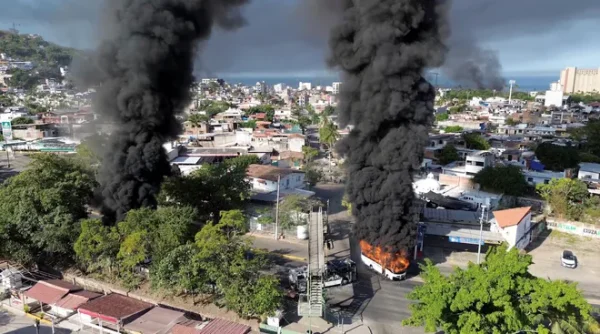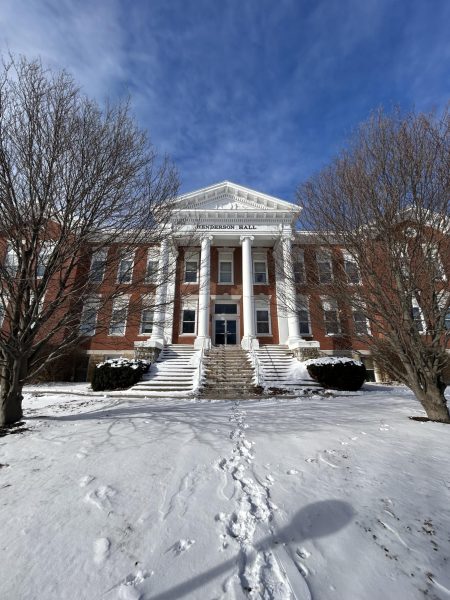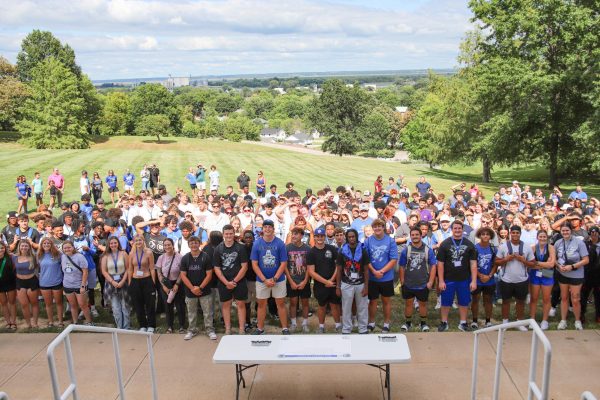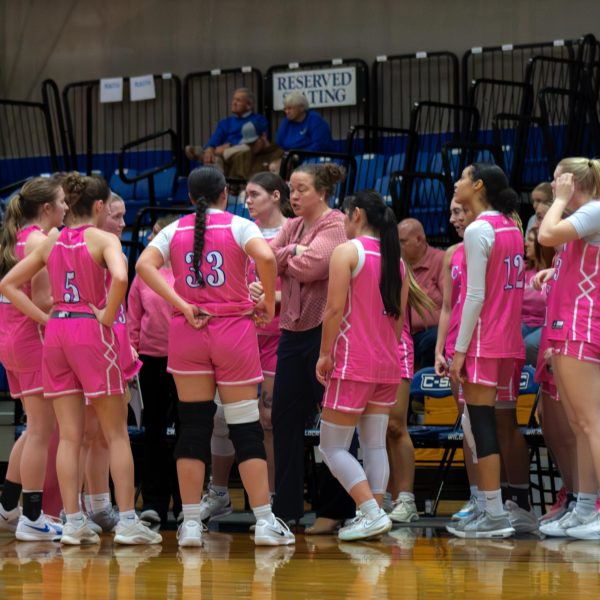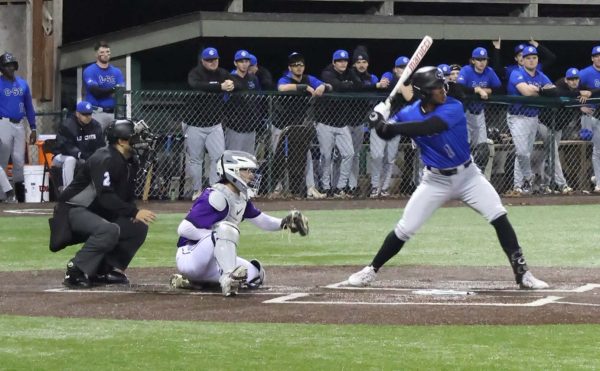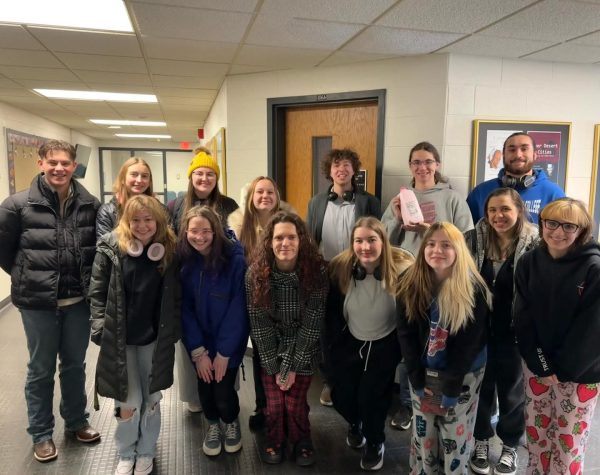The “Afghanistan Briefing” Series Offers Serious Analysis
Third in a Series
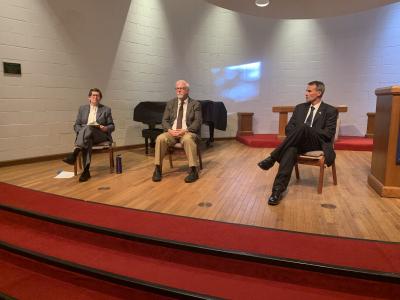
Panel members speak with the C-SC community
On Thursday, the third panel in the “Afghanistan Briefing” series was held in the Merilat Chapel, bringing history and political science professors Drs. Chad Dewaard, Patrick Hotle, and DeAnn Campbell together to discuss their perspectives on the history of and recent events in Afghanistan. The panel filtered analysis through the lenses of their disciplines and their personal expertise and perspective on the issue.
Subtitled “A Story of Foreign Occupation and Failed Military Doctrine”, the professors gave extensive background on the nation, setting out to help students understand the political organization and culture of Afghanistan’s many peoples, the tensions between societal forces, and how these and many other factors combined to lead into the tumultuous end of the United States’ war in Afghanistan.
Dr. Dewaard touts the event as a shining example of Culver Stockton’s mission as a college of the liberal arts, the mutli-disciplinary approach that has brought professors of political science, history, religion, and even the president of the college into a panel format, allowing the panelists and audience to ask productive questions that help to enrich mutual understanding of the issues discussed.
“We’ve approached this topic because many faculty here believe instance in Afghanistan is a situation in which the United States is confronted with a number of crises. And this is just one of those moments where the United States is at a crossroads, a crisis in leadership, a crisis in accountability, and it’s our hope that we can add to the conversation with some informed, and civil, and humble expertise.”
Dr. Hotle helped to relieve students of the limited perspective they might have on the nation, and laid out a few interesting tales of the nation’s history, from its ritzy, jet-setting monarchs of the early 20th century that were plastered across American magazines, to Kabul’s history as a Hippie stopover in their treks toward enlightenment and the nearest discotheque. A land of many peoples, Afghanistan has never truly been united, and invasions by the British, Soviet Union, and United States through the last few centuries have only served to deepen the divides between the different ethnic groups and self-governing villages of the region.
Perhaps the most enlightening history was that of the Taliban’s inception. During a conflict where the United States armed numerous disparate groups of militants referred to as the Mujahedeen to repel the Soviet invasion of the 1980s, and millions of refugees were forced into Pakistan. After nearly a decade of soviet occupation, and through the ten year civil war that followed, they found themselves languishing in refugee camps, where there was little to do, save for attending the Saudi-funded Madrasas.
These schools taught the young men an interpretation of Islam known as Wahabi, which encourages a hardline interpretation of religious law. Organized by Pakistan’s secret police, a group known as the Taliban, translated as Students were armed, funded, and pushed back across the border, to serve Pakistan’s interests in the region, but soon spiraled out of their control. Another group of note was Al Qaeda, or The Guesthouse, an organization which grew out of a guesthouse where the extremist militants could rest after crossing the border back into Pakistan.
Dr. Campbell explained that, due to the classification of information, a grand historical view of Afghanistan was unavailable, and the events that played out this year likely won’t truly be known for twenty-five or fifty years, when documents would become available to the public. However, she was able to give the on-the-ground view of the conflict through various sources, most prominent among them an airman who served seven tours in the war.
As to the question of why Afghanistan’s forces crumbled so quickly, those on the ground had seen for years that the Afghan army was generally more interested in the pay offered by the positions, which could be used to help their villages and families, rather than the actual fighting, while the Taliban was driven by a religious and ideological devotion to reclaiming their land.
Many issues undermined American efforts through the war, from the inability of Afghan forces to maintain the aircraft needed to operate an American-style military in Afghanistan without American contractors, to inter-tribal conflicts among the ranks, absent soldiers kept on the payroll by corrupt officials, and Taliban infiltration of the security forces, creating the infamous “green-on-blue” incidents.
Professors and students cultivated an open discussion of the points of failure from the lack of attention to these problems, raised by soldiers for decades in a chain of command where criticism of one’s superiors is taboo, to miscommunication between the Departments of Defense and State, to a bloated military command with nearly four times the generals that the U.S. had in the Second World War for a force nearly five times smaller than it was then. It was agreed America didn’t understand Afghan society, and wasn’t able to force a western-style military on a society that simply wasn’t organized in the same manner, ultimately leading to its abject failure in the region.
In the future, Dewaard stated he would like to see the college continue these forums, and furthermore to institutionalize them as part of the college’s regular practice, allowing faculty to bring the perspectives of their disciplines to create a better understanding of issues. He said that attendance had been pretty good, and that he’d seen some familiar faces, with students coming back for more across the events.
The fourth event in the series discussing women in Islam will be held on October 8, over the lunch hour in the Science Center.

